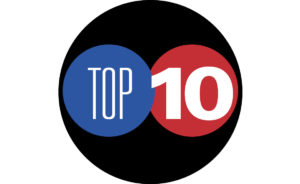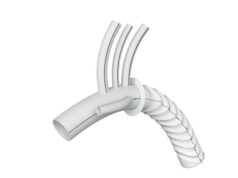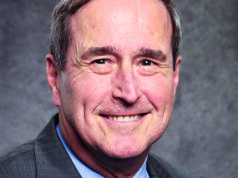 In November, the most read stories from Vascular Specialist include a reassessment of which carotid revascularization treatment modality is best after the recent Centers for Medicare & Medicaid Services (CMS) coverage expansion; updated analyses from the VOYAGER PAD clinical trial; Bhagwan Satiani, Vascular Specialist associate medical editor, considers time-management techniques and tools; and Peter Schneider provides insight on 36-month data from Surmodics’ TRANSCEND clinical trial.
In November, the most read stories from Vascular Specialist include a reassessment of which carotid revascularization treatment modality is best after the recent Centers for Medicare & Medicaid Services (CMS) coverage expansion; updated analyses from the VOYAGER PAD clinical trial; Bhagwan Satiani, Vascular Specialist associate medical editor, considers time-management techniques and tools; and Peter Schneider provides insight on 36-month data from Surmodics’ TRANSCEND clinical trial.
1. New survey shows transcarotid artery revascularization patients report faster recovery than their endarterectomy counterparts
For Scott Berman, MD, patient responses when confronted with an explanation of the extent of their asymptomatic carotid disease tend to be quite stark. They are either so petrified of having a stroke that they express clearly that they want to be operated on as a matter of urgency, the Tucson, Arizona-based vascular surgeon explains, or else they are steadfastly against surgery under any circumstance.
2. The pulmonary arterial tree—it is time we branch out
Nicolas Mouawad, MD, chief of vascular surgery at McLaren Health System in Bay City, Michigan, urges vascular surgeons to “get out of their comfort zone” and become more involved in pulmonary embolism (PE) care.
3. Computer-assisted vacuum thrombectomy system for patients with pulmonary embolism demonstrates ‘rapid, statistically significant’ improvement in RV/LV ratio
Patients undergoing computer-assisted vacuum thrombectomy with the Indigo Aspiration System (Penumbra) for pulmonary embolism (PE) showed 2.7% rates of both major adverse events (MAEs) and major bleeding at 48 hours post-procedure alongside “a significant reduction” in right ventricle/left ventricle (RV/LV) ratio of 25.7%, according to an interim analysis of the STRIKE-PE study.
4. Carotid disease: Getting to the right decision
The recent move by the CMS to expand coverage for carotid artery stenting brought with it the requirement for a shared decision-making interaction between physicians and patients as they establish which carotid revascularization treatment modality is best for their disease. Currently, a validated tool does not exist—but investigators at Dartmouth Hitchcock Medical Center are working on research aimed at changing that.
5. VOYAGER PAD analyses shed light on use of rivaroxaban in high-risk patient populations
New analyses from the VOYAGER PAD clinical trial in both high-risk and fragile patients and those with and without comorbid coronary artery diseases (CAD) were presented at the American Heart Association (AHA) 2023 Scientific Sessions (Nov. 11–13) in Philadelphia.
6. Intravenous anesthesia delivery during varicose vein treatment proves safe and reduces pain scores, researcher reports
A new intravenous anesthesia delivery technique used during endothermal ablation for varicose veins demonstrated comparatively low pain scores according to first-in-human (FIH) data recently presented at the 2023 VEITHsymposium.
7. Can you count the ‘monkeys’ on your back?
Bhagwan Satiani, Vascular Specialist associate medical editor, considers time-management techniques and tools and how a “high-level approach to separate the chaff from the wheat may start with things such as your own goals, organizational objectives followed by a variety of individual objectives”.
8. SVS announces leadership development program for vascular surgeons
Now set to welcome its fifth cohort, the SVS Leadership Development Program (LDP) continues to help vascular surgeons across the U.S. and Canada to hone their leadership skills.
Manuel Garcia-Toca, MD, chair of both the Leadership Development Committee and LDP, said he believes the seven-month program can revolutionize the leadership skills of vascular surgeons, empowering them to make a remarkable impact both in their field and beyond. The program will begin April 11, 2024.
9. Specialty representation at all levels of a healthcare organization is ‘increasingly important’ in value-based systems
A 14-year effort to achieve departmental status for vascular surgery at a large healthcare system in Southern California resulted in significant gains for the specialty within the organizational apparatus, according to an administrative case report on an effort finalized last year.
10. TRANSCEND 36-month data “continue to demonstrate safe and effective performance” of SurVeil DCB
Peter Schneider (University of California San Francisco, San Francisco, USA) recently presented 36-month data from Surmodics’ TRANSCEND clinical trial at the VEITHsymposium 2023 (14–18 November, New York, USA).











